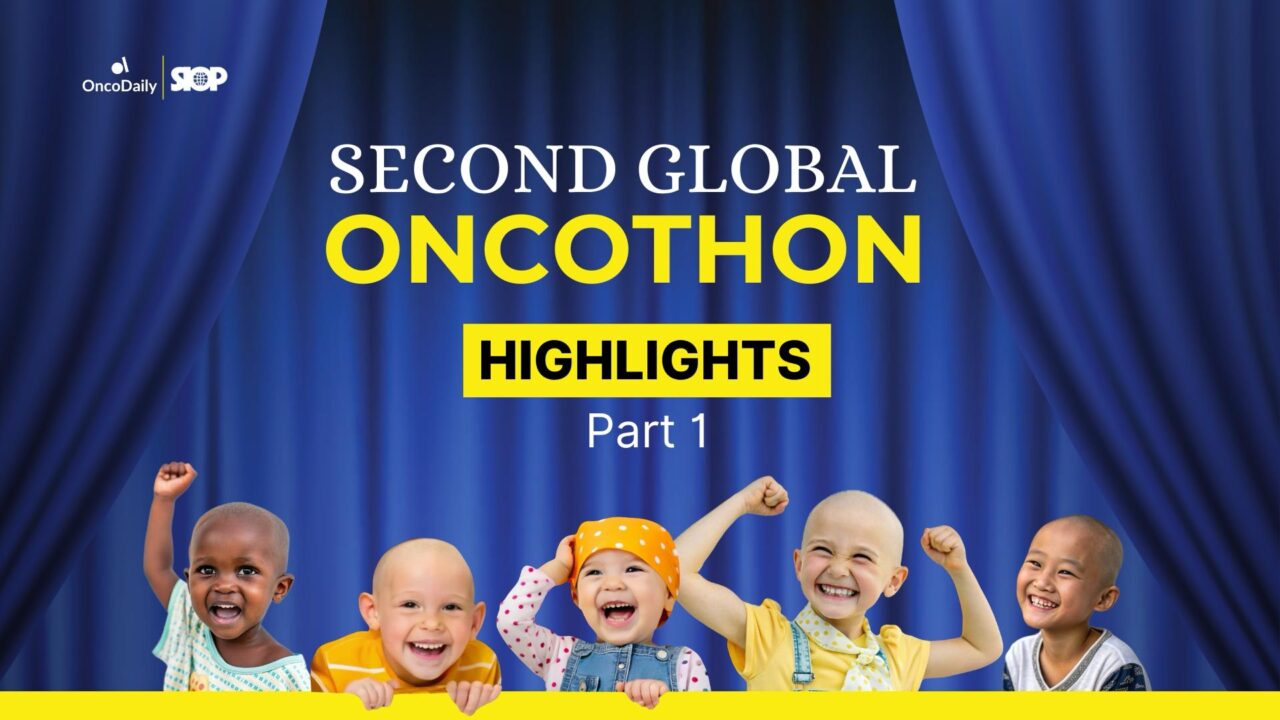
The Second Global OncoThon: Highlights Part 1
OncoDaily and the International Society of Pediatric Oncology (SIOP) are hosting the Second Global OncoThon, a 24-hour virtual event on February 15, 2025, raising funds and awareness for pediatric cancer research. Despite being a leading cause of childhood deaths, pediatric cancer receives far less funding than adult cancers, limiting treatment options.
With nearly half a million new cases each year, children face a critical gap in life-saving therapies. The OncoThon is bringing people together to share real stories, take action, and push for change. No child should fight cancer alone – now is the time to make a difference.
So far, inspiring speakers have shared powerful stories and groundbreaking insights. Here are some highlights from their talks as we continue this global movement to ensure no child fights cancer alone.
At the Second Global OncoThon by OncoDaily, Princess Dina Mired, Patron of the International Society of Paediatric Oncology – SIOP and Honorary President of the EORTC – European Organisation for Research and Treatment of Cancer Research Fund, delivered the welcoming speech. She emphasized the critical role of research in pediatric cancer, particularly in low- and middle-income countries (LMICs), and stressed that we must stand together to face this challenge.
To kick off the event, she challenged three of her friends to donate, officially declaring the OncoThon open.
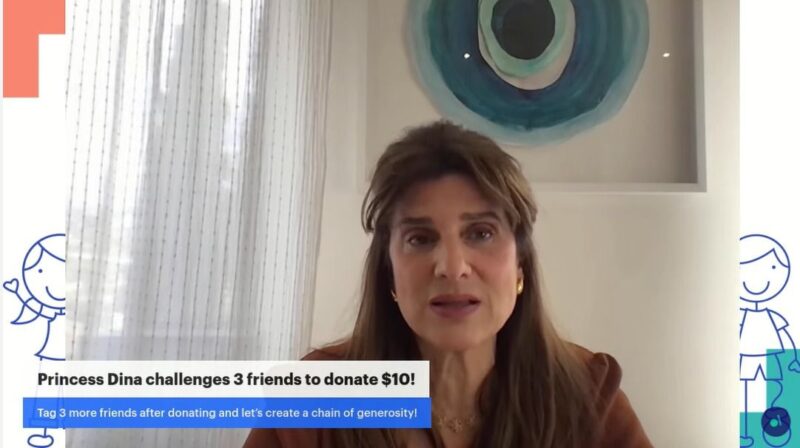
Kirsty Duncan, Former Minister of Science, Sport and Persons with Disabilities, the Deputy House Leader for the Government of Canada, and an award-winning scientist and policymaker talked about the critical need for accessible childhood cancer treatment, highlighting the vital role of sustainable funding in ensuring equitable care.
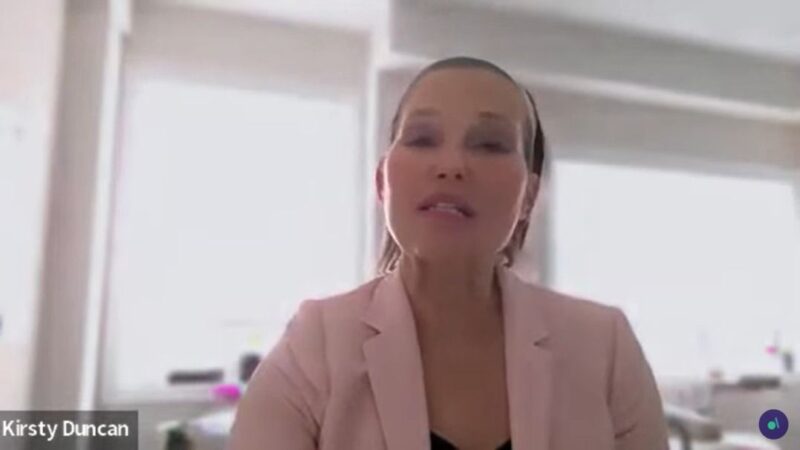
Prof. Gevorg Tamamyan, delivered his welcoming speech as Editor-in-Chief of OncoDaily, President of the International Society of Paediatric Oncology – SIOP Asia Continental Branch, and Pediatric Oncology East. He emphasized the importance of uniting for a common cause – ensuring every child with cancer receives the care they need.
He highlighted the critical need to raise awareness and funding for pediatric cancer research. Prof. Tamamyan also welcomed nearly 200 speakers to the event and challenged three of his friends to join the OncoThon and fight childhood cancer.
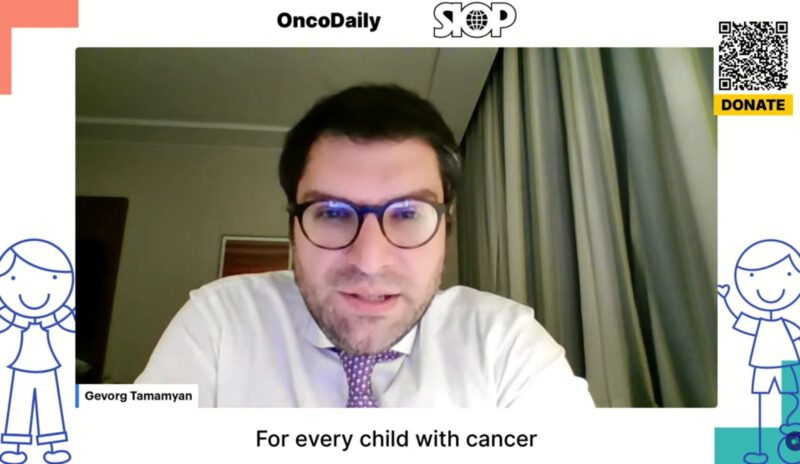
Guillermo Chantada, President of the International Society of Paediatric Oncology – SIOP, talked about the global efforts to cure pediatric cancer, highlighting “We are facing a big, big challenge: to cure children all over the world. No one should die with cancer. All children should be cured, no matter where they live.”
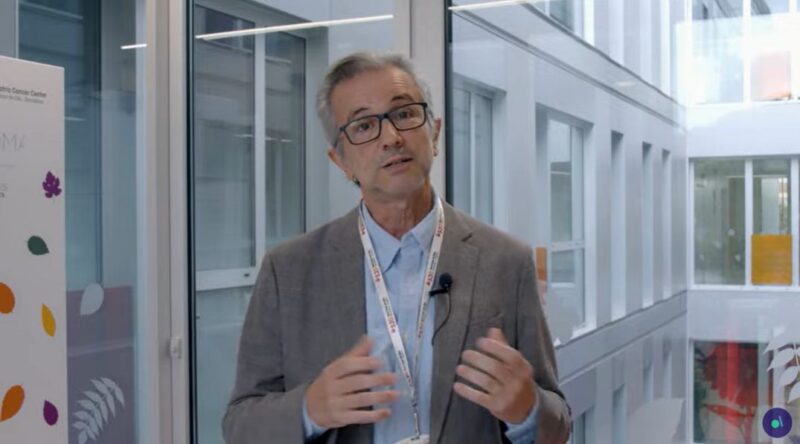
Carmelo Rizzari, Past-President of SIOPE and Head of the Pediatric Hematology-Oncology Unit at the Department of Pediatrics of the University of Milano-Bicocca, talked about the ongoing efforts in pediatric oncology across Europe, highlighting the importance of improving treatments, addressing inequalities in access to care, and enhancing the quality of life for childhood cancer survivors.
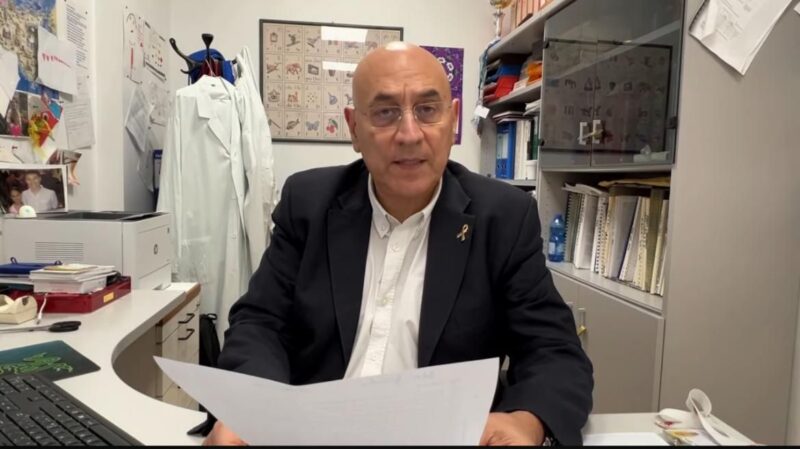
Maria (Masha) Babak, PhD, Head of The Babak Lab talked about the current landscape of drug discovery and development, their clinical implementation, and policy challenges, highlighting the critical need for funding to accelerate innovation and patient access.
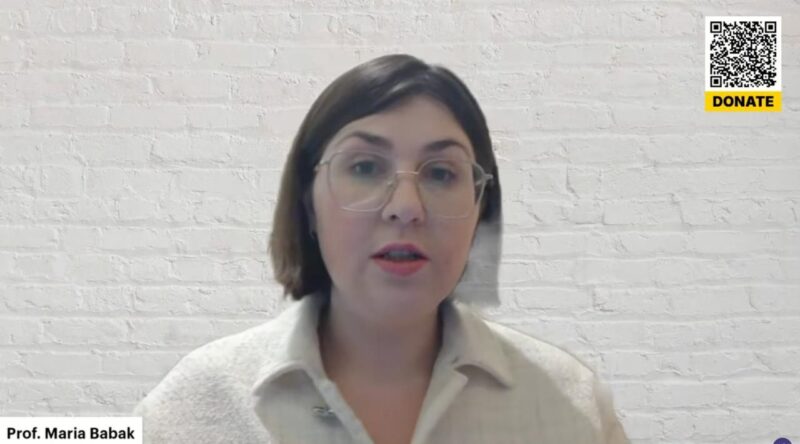
Lionel Messi, an 8-time Ballon d’Or winning soccer player, called on people worldwide to take part in the Second Global Oncothon and contribute to funding childhood cancer treatment.
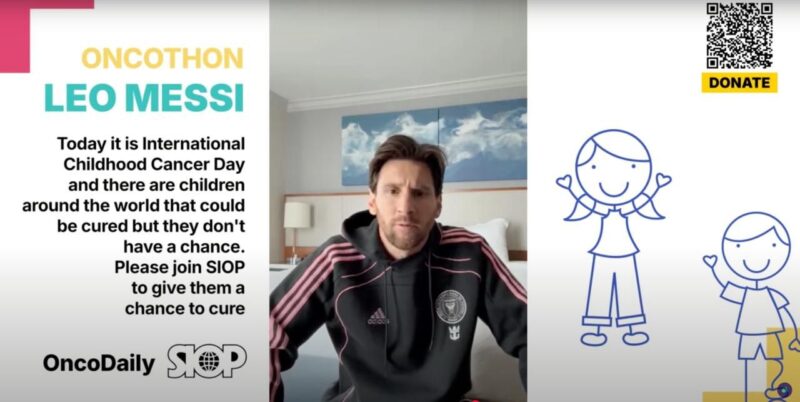
Ester Demirtshyan, CEO of the City of Smile Charitable Foundation, emphasized the urgent need to support childhood cancer. She stressed that access to cancer treatment should not be a privilege for a select few but a fundamental right for every child worldwide.
By supporting OncoThon, she highlighted the power of collective action, noting that when many people come together for a shared mission, success becomes inevitable.
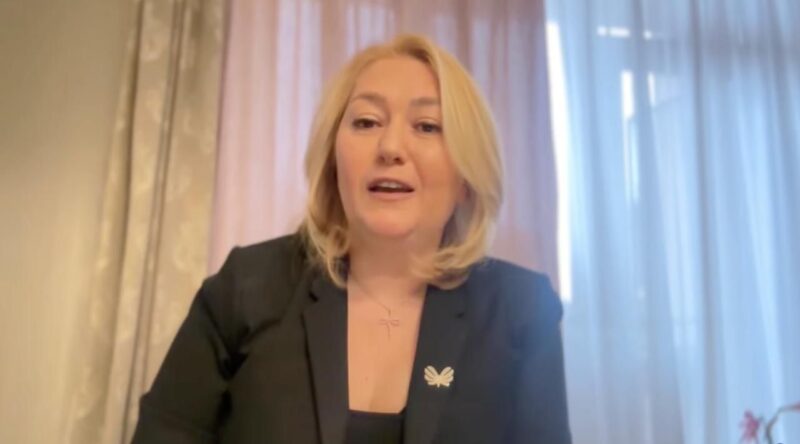
Samvel Danielyan, Senior Adviser at Immune Oncology Research Institute and Honorary President of the Armenian Association of Hematology and Oncology, highlighted Armenia’s progress in pediatric cancer care in Eastern Europe and emphasized the need for global improvements in sanitary conditions, staff training, and access to treatment.
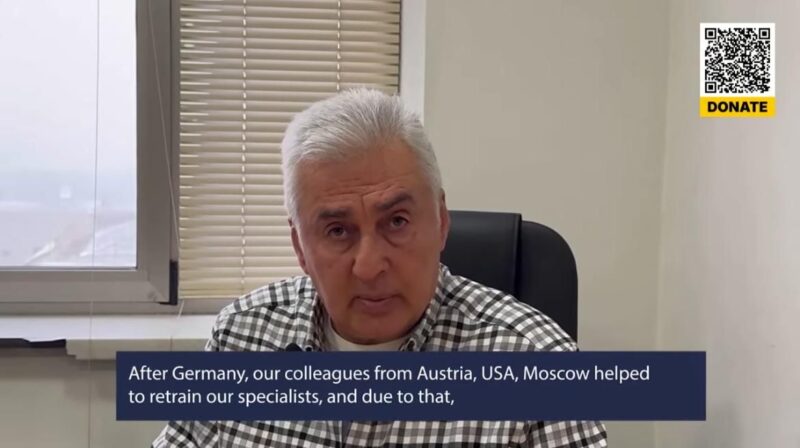
Akira Nakagawara, Chairman of the Executive Council of the Asian Pacific Hematology and Oncology Group (APHOG), highlighted the critical need for funding childhood cancer research. He shared his hope that OncoThon would bring joy and hope to every child battling cancer.
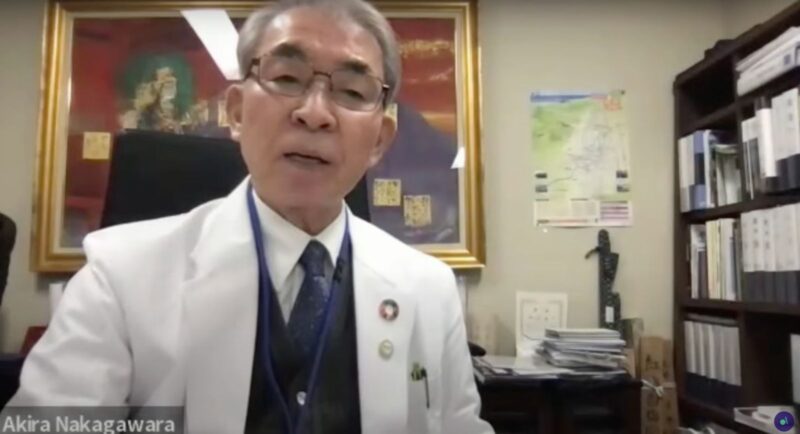
Samira Essiaf, Chief Executive Officer of SIOP Europe, the European Society for Paediatric Oncology (SIOPE), talked about the organization’s efforts to ensure childhood cancer remains a priority on the EU agenda, focusing on pharmaceutical regulation reform and the 2024 EU election manifesto.
She highlighted SIOPE’s impact on improving survival rates, advancing research, and advocating for better treatments and equal access for children with cancer across Europe.
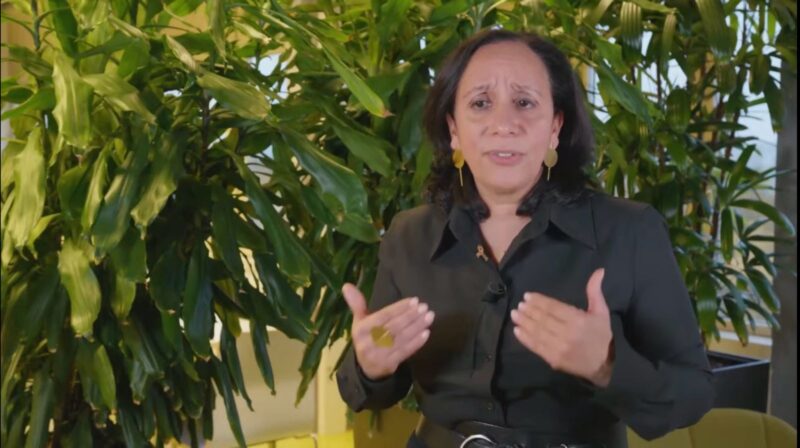
Daiming Fan, President of the China Anti-Cancer Association (CACA) and World Association for Integrative Oncology (WAIO), talked about the importance of global collaboration in the fight against cancer, highlighting “The burden of cancer knows no border.
It is a universal challenge that demands united responses. As a global population, the incidence and mortality of cancer are expected to rise. There is an urgent need for international cooperation in our fight against the disease.”
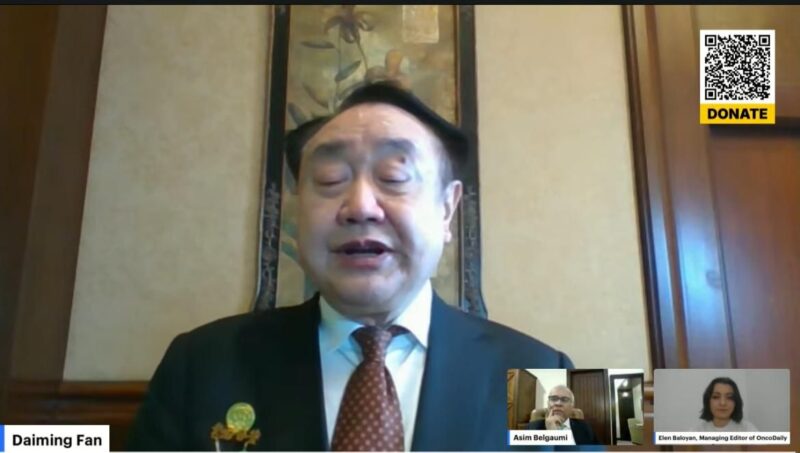
Asim Belgaumi, Chair of the International Society of Paediatric Oncology – SIOP Scientific Committee, discussed the limited access to childhood cancer care in low- and middle-income countries (LMICs), highlighting the 2018 WHO global initiative in collaboration with St. Jude Children’s Research Hospital, the challenges faced by Pakistan in this context, and the vital role of organizations like SIOP and the Pakistan Society of Pediatric Oncology (PSPO), highlighting the urgent need for increased funding to support research and improve treatment capabilities in these regions.
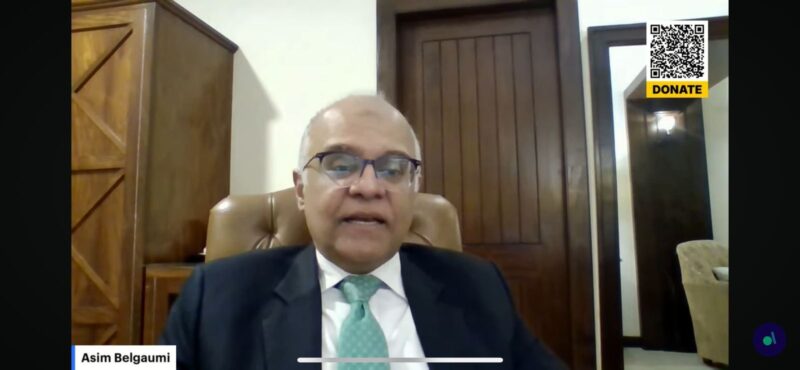
A session led by Shushan Hovsepyan featured Prof. Peng Ching-Tien, a professor at China Medical University’s Children’s Hospital, and Akihiro Yoneda, President of the Japanese Society of Pediatric Hematology and Oncology.
They addressed the challenges in childhood cancer research and care, expressing their gratitude to the organizers and encouraging others to join the cause. In closing, Prof. Peng Ching-Tien delivered a compelling message: “No child should be left behind.”
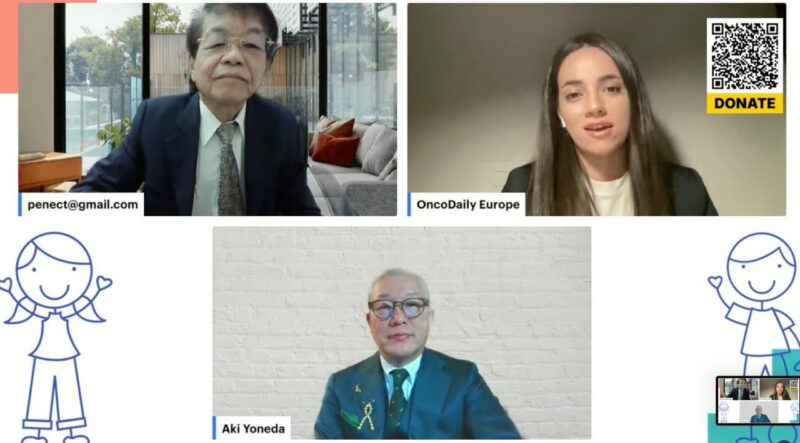
Matti Aapro, President of SPCC (Sharing Progress in Cancer Care) Cancer Care, Past President of ECO, and Chairman of the Editorial Board of OncoDaily Medical Journal, talked about the challenges in pediatric oncology, highlighting the importance of universal health coverage to ensure that all children receive the best possible treatment, regardless of their country or financial situation.
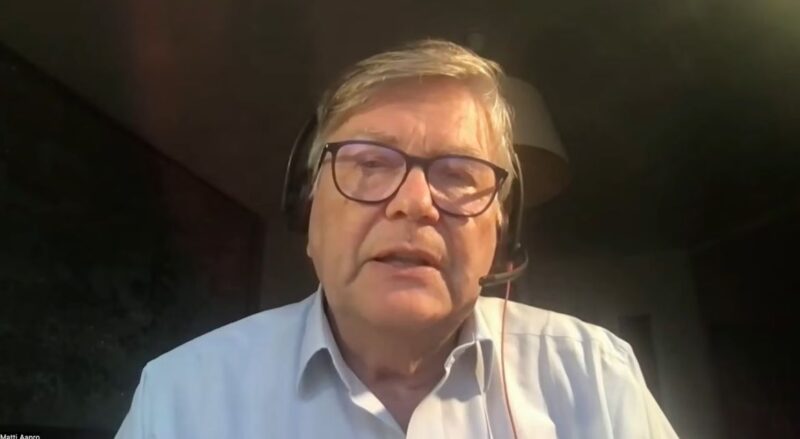
Elen Baloyan, MD, Managing Editor of OncoDaily, talked about OncoDaily’s core belief in providing a platform where nothing feels impossible and where people can make a real difference in cancer care.
“OncoDaily is the place where you remember what it is like to do something important and be able to do it. We are united by ambition and vision where everyone believes that they can make a difference.
Today, the Second Global Oncothon is the highlight of that vision when we call you to join us in the Oncothon challenge to help advance pediatric cancer research.”
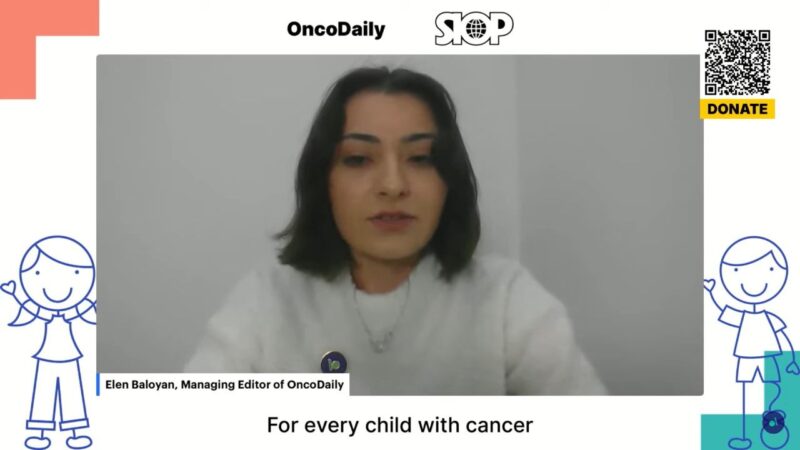
Tsetsegsaikhan Batmunkh, CEO of the National Cancer Council Mongolia, talked about the progress in childhood cancer care in Mongolia, highlighting the importance of global collaboration, the recognition of childhood cancer as a national health priority, and the need for continued efforts to improve survival rates and access to essential medicines for children with cancer.
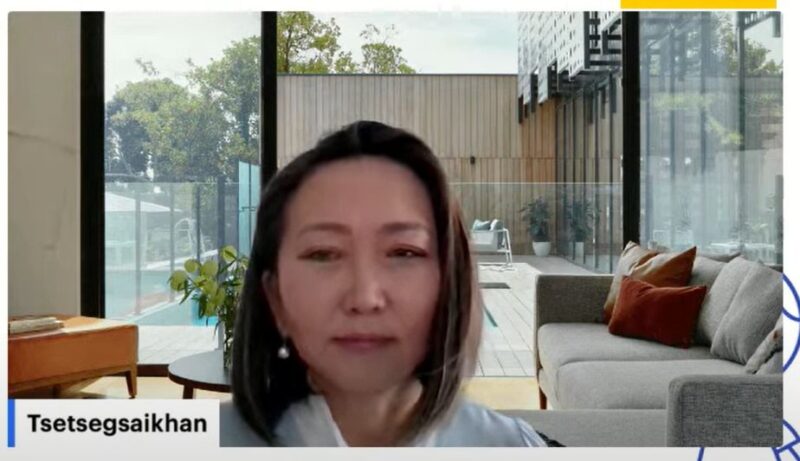
George Kapetanakis, President of the Hellenic Cancer Federation | ELLOK, talked about the challenges faced by patients and their families, including financial discrimination and limited access to high-quality healthcare in smaller countries, islands, and rural areas, as well as the importance of supporting survivorship, highlighting the critical need to recognize and protect the “Right to be forgotten”.
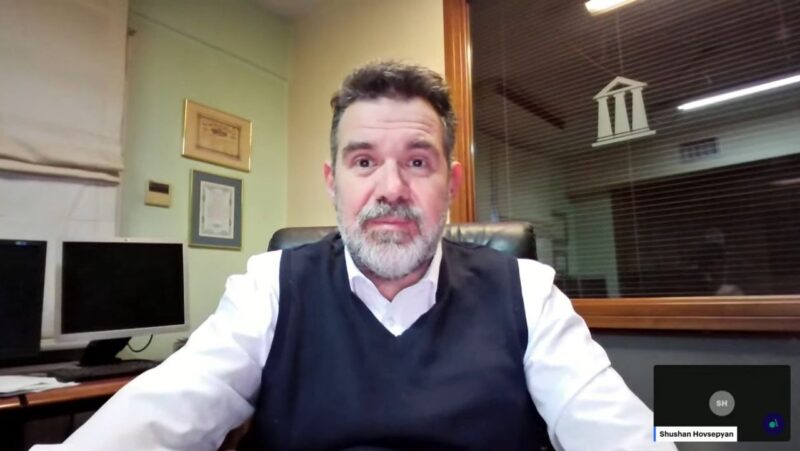
Dr. Roberta Ortiz Sequeira, Pediatric Oncologist at IIPAN, highlighted the need to raise awareness for childhood cancer. She emphasized that while childhood cancer is highly curable, there are significant gaps in care and treatment, particularly in low- and middle-income countries.
Dr. Ortiz Sequeira urged action to end these disparities and make cancer medicines accessible to all children. She concluded, “Childhood cancer shouldn’t be a death sentence. No child should be left behind because of equity. We have the power to transform outcomes, save lives, and bring hope to children and families everywhere.”
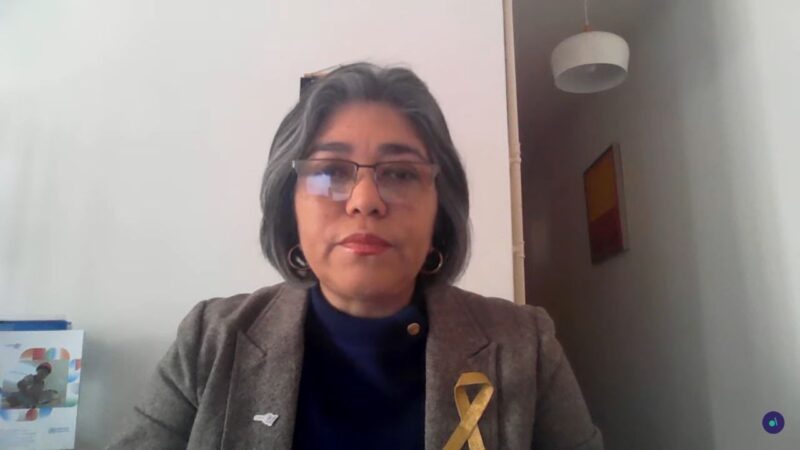
Michael Sullivan, Co-Director of the ARIA Guide Program and past President of International Society of Paediatric Oncology – SIOP Oceania Continental Branch, talked about the evolution of childhood cancer care and the challenges of bridging the gap between resource-rich settings and underserved regions.
He highlighted the ARIA project’s mission to transform evidence-based treatment guidelines into practical, accessible tools – such as a comprehensive portal with decision aids – that ensure every child receives safe, effective, and affordable care regardless of local resources.
“In 1960s we could send a man to the moon, but we couldn’t cure a child with cancer.”

Nita Radhakrishnan, Head of the Pediatric Hematology and Oncology Department at the Post Graduate Institute of Child Health in Noida, shared key insights on childhood cancer care. She began her talk expressing hope for the success of OncoThon, emphasizing the importance of supporting childhood cancer research and ensuring access to treatment for all children.
Dr. Radhakrishnan presented the findings of their study, revealing that some children with acute lymphoblastic leukemia (ALL) discontinue treatment due to social issues. She also discussed the challenges in treatment accessibility in India and the efforts being made to overcome these obstacles.
A major concern she highlighted was the lack of immunotherapy in India. She encouraged pharmaceutical companies to conduct trials in low- and middle-income countries, noting that this would be a game-changer for children in need of advanced treatment.
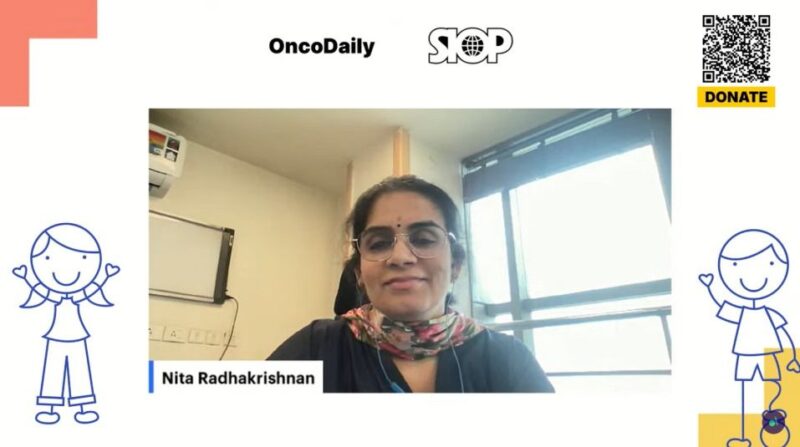
Girish Chinnaswamy, Professor (Pediatric Oncology) at the Department of Medical Oncology, TATA MEMORIAL HOSPITAL, talked about the importance of addressing the socio-cultural and logistical challenges families face in childhood cancer care.
He highlighted the significant progress made in India in reducing treatment abandonment by supporting families with financial aid, accommodation, and nutrition.
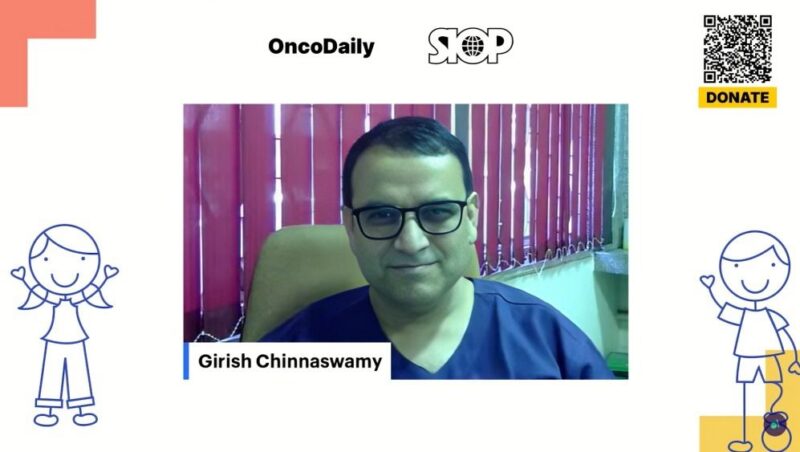
Rashmi Dalvi, Professor and Head of the Department of Pediatrics at Bombay Hospital Institute Of Medical Sciences and Continental President for SIOP-Asia (2018-2021), talked about the challenges in pediatric oncology, particularly in developing countries, including delayed diagnoses, limited access to care, and the lack of resources for adequate treatment.
She highlighted the urgent necessity for early detection, affordable therapies, and greater awareness to increase childhood cancer survival rates in low- and middle-income countries.

Ramandeep Arora, Director of the indian pediatric hematology oncology group (inphog), spoke about the challenges and progress in cancer treatment and care in India.
He emphasized that success in cancer treatment does not depend on a single factor but requires a multidisciplinary approach, including medical treatment, supportive care, and psychological support.
He also highlighted the importance of implementing clinical trials in low- and middle-income countries, stressing that expanding research opportunities could significantly improve outcomes for children with cancer.
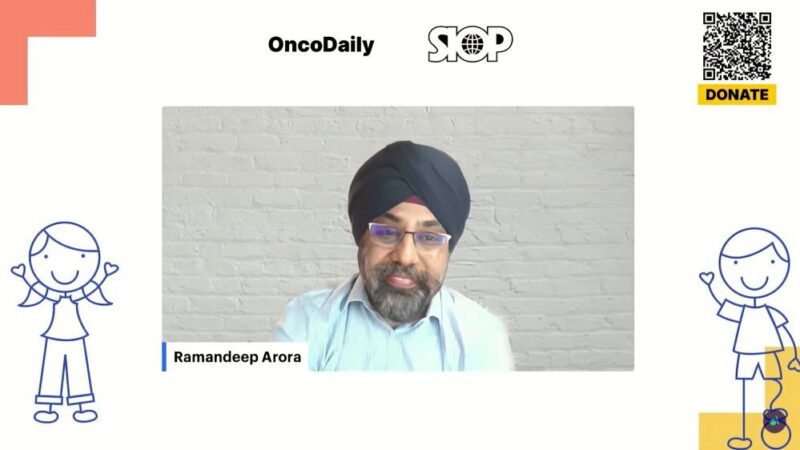
Naveen Thacker, President of The International Pediatric Association (IPA), ignited a wave of grassroots support by challenging three friends to donate $10 each and pass the challenge along to their three friends.
His simple yet powerful call to action underscores that even modest contributions can trigger a chain reaction of generosity, making a real impact in the fight against childhood cancer.
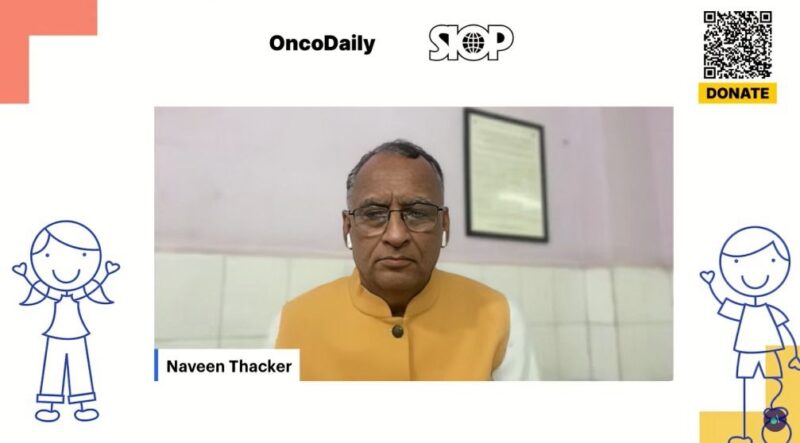
Jemma Arakelyan, Medical Oncologist and CEO at the The Institute of Cancer and Crisis (ICC), shared her heartfelt perspective on the challenges faced by young cancer patients, reflecting on her experiences working with both children and young adults during her residency.
She emphasized the grave disparity in pediatric cancer research, noting that while nearly half a million new cases emerge each year, fewer than 30 drugs have been developed specifically for children due to the small patient population, regulatory challenges, and the unique nature of pediatric cancers. for 7 seconds.
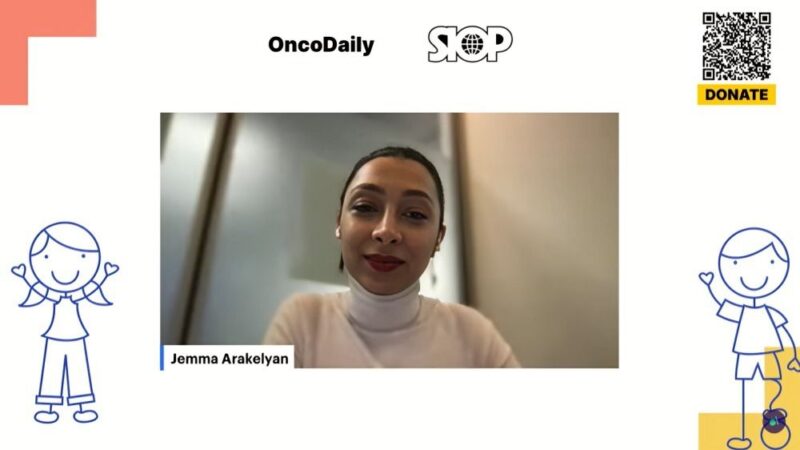
Rodney Wong, President of Childhood Cancer International (CCI), underscored the need for adequate funding for childhood cancer research and care. He called for unity in this vital cause and shared CCI’s vision for 2025, outlining its support for key projects.
Expressing hope for a future without childhood cancer, he concluded his speech by challenging three friends to donate to OncoThon and encouraging others to contribute as well.
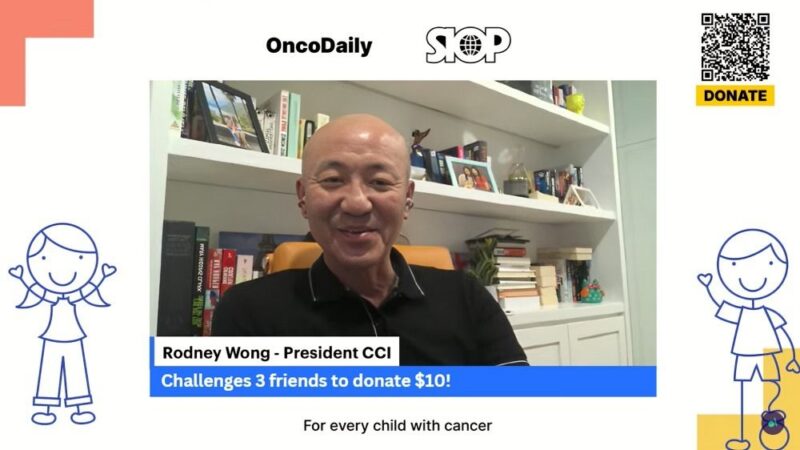
Joyce Balagadde Kambugu, President of SIOP Africa, talked about the deeply unique challenges children and adolescents with cancer face in Africa, including healthcare financing, social stigma, and the significant financial and emotional burdens borne by their families.
She highlighted the critical need for advocacy and partnerships within African countries to address these barriers and ensure that local resources – such as institutions, NGOs, and private sectors—are effectively mobilized to support cancer care for children despite the difficult realities.
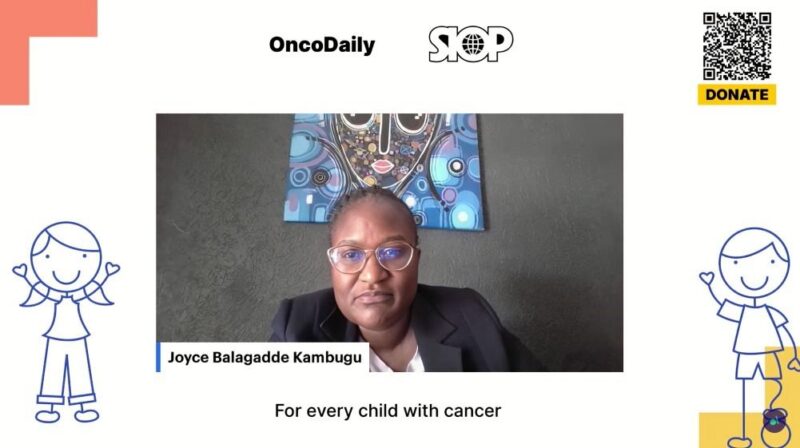
-
ESMO 2024 Congress
September 13-17, 2024
-
ASCO Annual Meeting
May 30 - June 4, 2024
-
Yvonne Award 2024
May 31, 2024
-
OncoThon 2024, Online
Feb. 15, 2024
-
Global Summit on War & Cancer 2023, Online
Dec. 14-16, 2023
